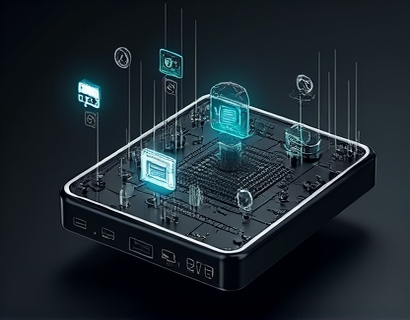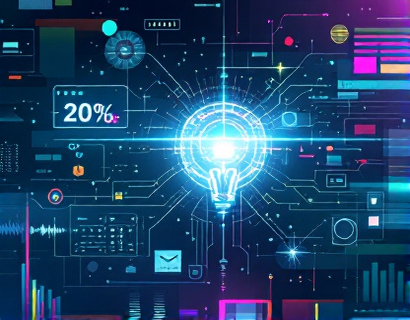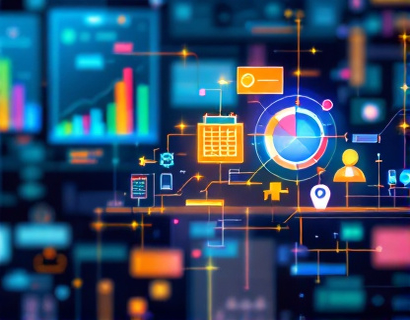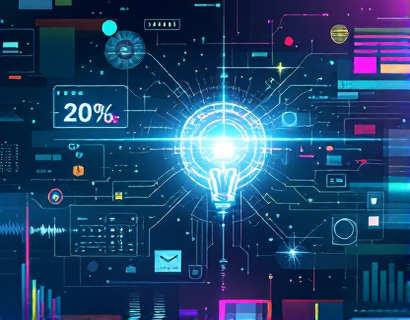AI-Powered Chat Interface: Instant Access to Attorney Services and Legal Knowledge
In today's fast-paced world, individuals and professionals alike often find themselves in need of legal assistance. Whether it's a simple question about a contract, a complex family law issue, or navigating the intricacies of business regulations, having access to reliable legal information is crucial. The advent of AI-powered chat interfaces has revolutionized the way we access legal services and knowledge, providing instant support and expert insights at our fingertips.
Understanding AI-Powered Chat Interfaces
AI-powered chat interfaces utilize advanced algorithms and natural language processing to interact with users in real-time. These systems are designed to understand user queries, provide relevant information, and guide individuals through various legal processes. By leveraging artificial intelligence, these chat interfaces can deliver accurate and timely responses, making legal knowledge more accessible than ever before.
The Importance of Instant Access to Legal Information
Access to legal information is essential for informed decision-making. Individuals seeking legal assistance often face time-sensitive issues that require immediate attention. Traditional methods of obtaining legal advice, such as scheduling consultations or conducting extensive research, can be time-consuming and inefficient. AI chat interfaces bridge this gap by offering instant access to a wealth of legal knowledge, empowering users to make informed choices without unnecessary delays.
Benefits of Using AI Chat Interfaces for Legal Insights
- 24/7 Availability: AI chat interfaces are available around the clock, allowing users to seek legal information at any time, day or night.
- Cost-Effective: Many AI chat solutions offer free or low-cost access to legal information, making it more affordable for individuals and small businesses.
- User-Friendly: These interfaces are designed to be intuitive, enabling users to navigate legal topics easily without needing extensive legal knowledge.
- Personalized Responses: AI chat systems can tailor responses based on user input, providing relevant information that meets individual needs.
- Efficient Information Retrieval: Users can quickly obtain answers to their questions, reducing the time spent searching for legal information.
How AI Chat Interfaces Work
AI chat interfaces operate through a combination of machine learning, natural language processing, and vast databases of legal information. When a user submits a query, the AI analyzes the input, identifies key terms, and retrieves relevant data from its knowledge base. The system then formulates a response that is both accurate and easy to understand. This process occurs in real-time, allowing for seamless interaction between the user and the AI.
Key Features of AI-Powered Legal Chat Interfaces
- Natural Language Processing: This technology enables the AI to understand and interpret user queries in everyday language, making interactions more conversational.
- Knowledge Base: A comprehensive database of legal information ensures that the AI can provide accurate and up-to-date responses.
- Learning Capabilities: AI systems continuously learn from user interactions, improving their responses and expanding their knowledge over time.
- Security Measures: Robust security protocols protect user data and ensure confidentiality, which is particularly important in legal matters.
Applications of AI Chat Interfaces in Legal Services
AI chat interfaces have a wide range of applications in the legal field, catering to both individuals and legal professionals. Here are some key areas where these systems are making a significant impact:
1. Legal Research
Legal research can be a daunting task, often requiring hours of sifting through case law, statutes, and regulations. AI chat interfaces simplify this process by providing instant access to relevant legal precedents and resources. Users can ask specific questions and receive tailored responses that guide them to the information they need.
2. Document Preparation
Preparing legal documents can be complex and time-consuming. AI chat interfaces can assist users in drafting contracts, wills, and other legal documents by providing templates and step-by-step guidance. This not only saves time but also reduces the risk of errors in document preparation.
3. Client Intake and Management
For legal professionals, AI chat interfaces can streamline client intake processes. By automating initial consultations and gathering essential information from potential clients, these systems free up valuable time for attorneys to focus on more complex legal matters.
4. Legal Advice and Guidance
Individuals seeking legal advice can benefit from AI chat interfaces that provide general guidance on various legal issues. While these systems cannot replace personalized legal counsel, they can offer valuable insights and help users understand their options before consulting with an attorney.
5. Compliance and Regulatory Assistance
Businesses often face challenges in navigating compliance and regulatory requirements. AI chat interfaces can provide real-time information on industry-specific regulations, helping organizations stay informed and compliant with the law.
Challenges and Considerations
While AI chat interfaces offer numerous benefits, there are also challenges and considerations to keep in mind:
1. Limitations of AI
AI chat interfaces are not infallible. They rely on existing data and algorithms, which means they may not always provide the most accurate or comprehensive answers. Users should be aware of these limitations and seek professional legal advice for complex issues.
2. Ethical Considerations
The use of AI in legal services raises ethical questions, particularly regarding confidentiality and the unauthorized practice of law. It is essential for users to understand the boundaries of AI assistance and ensure that their interactions remain within legal and ethical guidelines.
3. User Trust and Acceptance
Building trust in AI chat interfaces is crucial for widespread adoption. Users must feel confident that the information provided is reliable and that their data is secure. Transparency in how AI systems operate and the sources of their information can help foster this trust.
The Future of AI in Legal Services
The integration of AI chat interfaces in the legal field is still in its early stages, but the potential for growth and innovation is immense. As technology continues to evolve, we can expect to see even more sophisticated AI systems that can handle increasingly complex legal queries and provide deeper insights into legal matters.
1. Enhanced Personalization
Future AI chat interfaces may leverage advanced machine learning techniques to offer even more personalized responses based on user behavior and preferences. This could lead to a more tailored experience, where users receive information that is specifically relevant to their unique legal situations.
2. Integration with Other Technologies
AI chat interfaces may also integrate with other technologies, such as blockchain and smart contracts, to provide users with a more comprehensive legal service experience. This could streamline processes and enhance the overall efficiency of legal transactions.
3. Increased Accessibility
As AI technology becomes more advanced and widespread, access to legal information and services will likely become more equitable. This could empower individuals from diverse backgrounds to seek legal assistance without the barriers that currently exist.
Conclusion
The emergence of AI-powered chat interfaces marks a significant advancement in the accessibility of legal services and knowledge. By providing instant access to reliable legal information, these systems empower individuals and professionals to make informed decisions in their legal matters. While challenges remain, the potential for AI to transform the legal landscape is undeniable. As technology continues to evolve, we can look forward to a future where legal assistance is more accessible, efficient, and user-friendly than ever before.










































